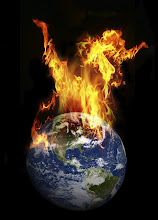
- “But it’s not going to be easy for the Takers. It’s going to be hard as hell for them to give it up, because what they’re doing is right, and they have to go on doing it even if it means destroying the world and mankind with it.” (Page 168)
- “Look, I can’t forbid you to say, ‘I have no idea’ but I do insist that you spend a few seconds thinking before you say it.” (Page 170)
- “Until Darwin and the paleontologists came along to tack three million years of human life onto your history, it was assumed in your culture that the birth of man and the birth of your culture were simultaneous events” (Page 201)
In the fields of science, humans have thrived on new discoveries and calculations of how the complex nature of life functions. Since we first began manipulating our environments in search of knowledge through experimentation, we have amassed a great wealth of information. To what end will we search in our quest to discover and is our purpose a noble one? How long until the world and nature of life, the very essence of our fascination, vanishes beneath the statues of our achievements? Considering the rapid population growth of human civilizations, it seems that we alone pose the most probable threat to Earth’s biodiversity. If this should be the time in our history that we begin to preserve the nature that surrounds us, rather than continue our infliction of harm upon it, then it shall also be our cornerstone of cultural reconstruction. If the discoveries of man (and women, alike) have taught us anything at all, it is the indisputable truth that the energies of life wane in our path of destruction, only to flourish once again when we have passed. In our quest to control the world and our surroundings the only safe conclusion we ought to draw is that behind all of our technologies and sciences we are still vulnerable; we breathe the air and drink the water which we pollute.
Consider our Earth as the fulcrum upon which all life is balanced. The rapid expansion of our population has created a massive, disproportional force across from which all other species teeter on the brink of extinction. Until we realize that we have taken the world into our hands, by affecting and manipulating the natural processes of the Earth, the species which once depended on the natural environment will face an uncertain doom. It is our duty to replace the Earth back into the hands of the rightful owner. The survival of our species and many other species depends on our ability to do this.
Ishmael was a perfect book for this course, because it helps describe how the sum of our actions has affected the Earth and all other life since the Agricultural Revolution of ancient
Ishmael reinforced and brought together a lot of ideas I had always been pondering. There is a wholesome truth in the themes and ideas that Daniel Quinn relays through Ishmael’s teachings. Even more intriguing is the impression of a Gorilla as the teacher of Man. There is a lot to be said about this, mainly, I feel Ishmael represents the voice of nature. Who else could recollect the total extent of our destructive tendencies as a species better than the voice of nature: the air and soil, rivers and oceans, plants and animals?
WITH GORILLA GONE,
WILL THERE
BE HOPE FOR MAN?

No comments:
Post a Comment